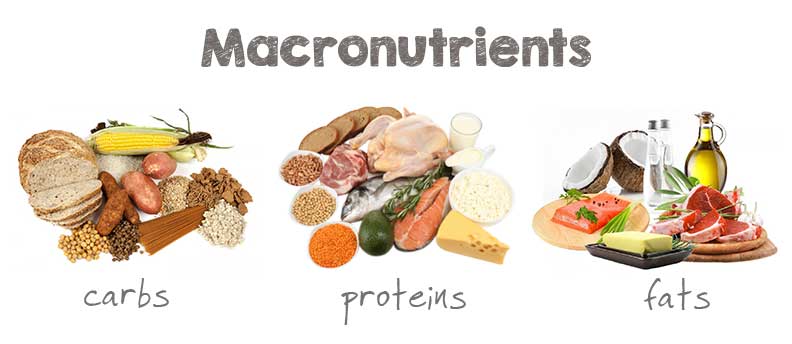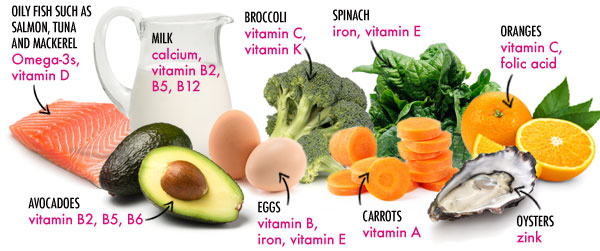Nutrition
An Overview of Nutrition
Nutrition is the process of consuming food and having the body use it as raw materials for growth, fuel, and function. But there are various parts that comprise overall nutrition, including actual nutrients, reasons to eat healthy, ways to eat smart, and much more.
Macronutrients: Carbohydrates, Protein, and Fats
The foods you eat provide the energy your body needs to work. Just like you need to put fuel in your car or recharge your cell phone battery, your body needs to be fed food that provides it with energy every day.
Glucose is the body's favorite form of energy. Carbohydrates are broken down into glucose as well as fructose and galactose units. If you don't get enough carbohydrates, your body can make glucose from protein through a processed called gluconeogenesis. If you consume too many carbohydrates, your body will convert them into fat, used then for storage in your adipose tissue. Protein comes from foods you eat and is broken down into individual amino acids.
Micronutrients: Vitamins and Minerals
The vitamins and minerals you get from your diet are just as important as the carbohydrates, protein, and fats (even though you only need them in small amounts). They usually function as co-enzymes, which means they help speed up some of the body's chemical reactions. For example:
- Many B-complex vitamins help burn carbohydrates for energy.
- Vitamin A is needed for vision.
- Zinc is involved in many metabolic process.
- Vitamin C helps keep connective tissue strong and the immune system functioning.
- Vitamin D is essential for proper calcium uptake.
Minerals are so named because your body needs only a tiny amount of each one. But that doesn't mean they don't matter because you need nine trace minerals to be healthy. Chromium is necessary for healthy metabolism and storage of sugar and starch. It enhances the effects of insulin, a hormone that regulates the amount of glucose in your blood.
Chromium is essential for the metabolism of proteins and fats, as well. Dietary chromium is found in small quantities in a wide variety of foods, so deficiency is rare. Meat, whole grains, broccoli, potatoes, apples, bananas, garlic, and basil are all good sources of dietary chromium.
Copper is found in organ meats, shellfish, nuts, seeds, cocoa, and whole grain products. Deficiency is unlikely as long as you get enough to eat every day, but it can happen if you consume an enormous amount of zinc.
You'll find flouride in fluoridated drinking water, tea, and seafood. It's also found in fluoridated dental products such as toothpaste and some mouth rinses.
Iodine is found naturally in seafood and plant-based foods grown in iodine-rich soils such as the soil found near oceans.
Iron is also essential for normal immune system function and normal cell growth. Iron-rich foods include organ meats, muscle meat, poultry, fish, legumes, and dark leafy greens.
Manganese is found in pecans and other nuts, pineapples, sweet potatoes, seeds, legumes, and whole grains.
Speaking of calcium, it's probably the best known dietary mineral. It has several functions in the body. But the reason you hear or read about calcium so much is because lots of it is stored in your bones and teeth. Therefore, you need it from your diet to keep your bones and teeth strong. Another mineral you've probably heard a lot about is iron. Although you don't need as much iron as calcium, it's essential for your cells to get enough oxygen.
Disclaimer :

Any action you take upon the information on this website is strictly at your own risk, and we will not be liable for any losses and damages in connection with the use of our website. The website founder urges the website visitor to check with a qualified dietician or health professional before using any procedure whose appropriateness may be of concern.
Copyright © 2018 Hasnain Zaki. All Rights Reserved.












